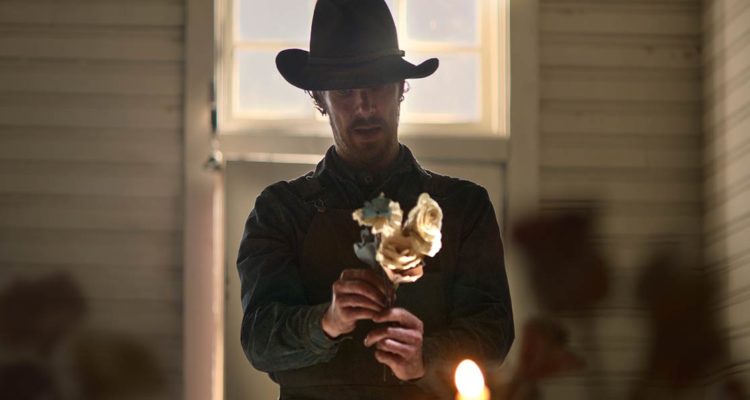If you’re a film fan that is desperately looking for the features that are considered heavy awards favorites as we head into the end of the year, look no further than Jane Campion’s drama, “The Power of the Dog.”
As seen in the trailer for “The Power of the Dog,” the film tells the story of two brothers in 1925 Montana. When one of them welcomes a widow and her son into their home, the other brother begins to act mean towards the new guests. As you might expect, tension builds and begins to boil over. The film stars Benedict Cumberbatch, Kirsten Dunst, Jesse Plemons, Kodi Smit-McPhee, Thomasin McKenzie, Frances Conroy, Keith Carradine, Peter Carroll, and Adam Beach.
Upon its debut at this year’s Venice Film Festival, “The Power of the Dog” became an instant awards contender, with rave reviews coming from nearly every outlet. In our review, we said, “‘The Power of the Dog’ soars everywhere else despite being a movie that favors small yet jittery moments that seldom detonate over big and loud ones. It’s cinematic poetry, if there ever was one, bourgeoning in meaning the more you linger in its shadow.”
“The Power of The Dog” is in select theaters in November and arrives on on Netflix on December 1. Watch the new trailer below.
Here’s the synopsis:
Severe, pale-eyed, handsome, Phil Burbank is brutally beguiling. All of Phil’s romance, power and fragility is trapped in the past and in the land: He can castrate a bull calf with two swift slashes of his knife; he swims naked in the river, smearing his body with mud. He is a cowboy as raw as his hides.
The year is 1925. The Burbank brothers are wealthy ranchers in Montana. At the Red Mill restaurant on their way to market, the brothers meet Rose, the widowed proprietress, and her impressionable son Peter. Phil behaves so cruelly he drives them both to tears, revelling in their hurt and rousing his fellow cowhands to laughter – all except his brother George, who comforts Rose then returns to marry her.
As Phil swings between fury and cunning, his taunting of Rose takes an eerie form – he hovers at the edges of her vision, whistling a tune she can no longer play. His mockery of her son is more overt, amplified by the cheering of Phil’s cowhand disciples. Then Phil appears to take the boy under his wing. Is this latest gesture a softening that leaves Phil exposed, or a plot twisting further into menace?

